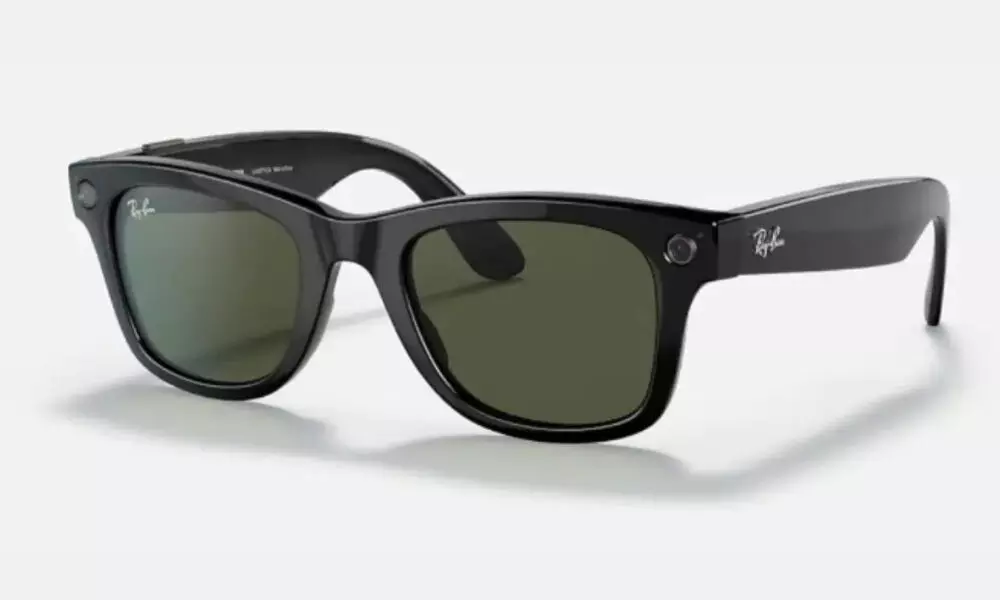Facebook's Ray-Ban Smart Glasses Bring Cameras, Speakers, Privacy Concerns, But No AR

Facebook's Ray-Ban Smart Glasses Bring Cameras, Speakers, Privacy Concerns, But No AR
While Facebook smart glasses have yet to find a foot in the commercial market, analysts say they are part of an emerging market.
Facebook has launched its first smart glasses set, in partnership with eyewear manufacturer Ray-Ban. The smart glasses from Facebook and Ray-Ban are called Ray-Ban Stories and there is no AR. The smart glasses only take photos and record 30-second videos. They also play music and podcasts and make calls. The smart glasses have gone on sale in the US, UK, Canada, Italy, Ireland, and Australia, and are priced at $ 299 (approximately Rs 21,975). Smart glasses have been launched to show how Facebook is betting on Augmented Reality. Facebook CEO Mark Zuckerberg has excited people about a future where augmented reality glasses will allow people to play games on their couches or share something on social media without their smartphones. "Ray-Ban Stories (smart glasses) is an important step into the future when phones are no longer a central part of our lives and you will not have to choose between interacting with a device or interacting with the world around you," Zuckerberg said in a video posted Thursday.
While Facebook's smart glasses don't include any augmented reality apps, they bring the company closer to its goal. In what was a disappointment to many enthusiasts, Facebook smart glasses don't allow users to browse Facebook, shop, or play games. The smart glasses also include a virtual assistant so that users can take photos and videos hands-free by saying "Hello Facebook." People using Ray-Ban Stories will also need a separate Facebook View application to share photos and videos captured on the device for Other Platforms. Now, Facebook isn't the first company to promote a pair of smart glasses. Google, Snap, and Amazon have launched smart glasses. However, the average consumer has stopped using them all.
While smart glasses have yet to find a foot in the commercial market, analysts say they are part of an emerging market. A report by ImmersivEdge Advisors was quoted in a Cnet report as saying that annual smart glasses sales will reach more than 22 million units by 2030. Smart glasses also carry privacy concerns, and Facebook doesn't have the best reputation when it comes to keeping data private. Privacy advocates have also argued that such devices can be used for surveillance.















